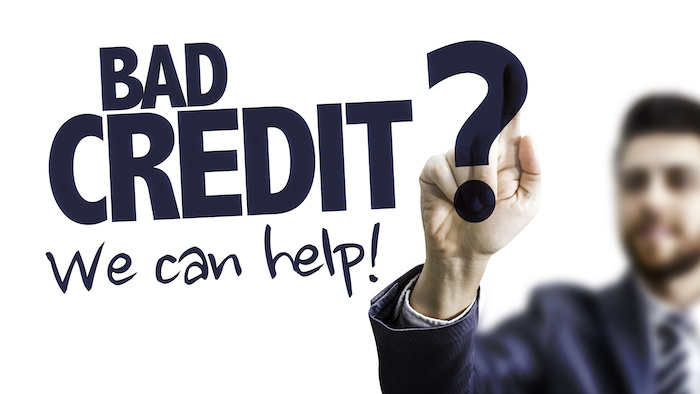Millions of Americans struggle financially, and as a result, have poor to bad credit. On average, those people have credit scores that fall between 300 and 600. Such low scores give these individuals far fewer opportunities for securing a loan, credit card and more.

However, these statistics are about individuals and individuals who own businesses can have a tough time procuring a merchant account if they have poor to bad credit. There are many new businesses that have no or bad credit as well. Issues such as tax liens, previous bankruptcies and of course, collections, can cause a business to flounder. Banks and other financial institutions view these businesses as poor risks and do not extend loans or merchant accounts to them. However, there is a good way that a business can get back on track even if it has bad credit: by getting the right merchant account, things can quickly turn around. Credit card processing via a merchant account is the best, most convenient way to accept payments from customers or clients.
Requirements for Applying for a Bad Credit Merchant Account
There are certain requirements business owners need to meet in order to apply for a bad credit merchant account. They include the following:
- Valid government-issued ID
- Three months most recent bank statements (unless you just opened the account)
- Three months most recent processing statements (unless you just opened the business)
- Bank letter or pre-printed voided check
- Social Security number or Employer Identification Number
- Secure and complete website
What Underwriters Look for During the Application Process
While the bad credit merchant account application process is taking place, underwriters want to ensure that the business is legitimate and reputable. The underwriters will take a look at certain factors to determine whether a business is a considerable risk. They also want to make sure that the merchant is in compliance with all rules and regulations and will consider the following:
- Credit scores
- Credit card processing history
- Bank statements
- Company website
Underwriters will explore whether the business’ official website has sufficient privacy and a clear refund policy posted. If these two things are not in place, it can adversely affect the application. Other issues that can place the application in question are high chargeback rates, unpaid or late bill payments and negative balances in bank accounts.
Depending on how many negative items there are on a credit report and if there is an open bankruptcy, underwriters may request a reserve with your merchant account. The reserve is usually 10-15% of your sales volume deposited into an escrow account to give comfort to the bank for the risk they are taking. Should you default on your merchant account this will help them mitigate their losses. That reserve is released back to you with time and good processing history. Additionally, the business stakeholder who has the best credit history should be the one to apply for the bad credit merchant account. These steps can help a business’ chances of having their application approved.
Why are Bad Credit Merchants Prone to Chargebacks?
Businesses that have bad credit are more prone to chargebacks than those that have good credit. This is because a tax lien or bankruptcy represents more of a risk, which means there is a good chance that the business might not flourish as hoped. If there are issues, customers or clients might be reluctant to get their goods or services from that business.
If there is a problem regarding a customer or client wanting a refund, it can reflect badly on the business if they are not immediately issued that refund. One of the repercussions of that is a chargeback. Not having paper or electronic receipts can also be problematic. When a customer or client is billed multiple times, it can also result in chargebacks. Generally speaking, this happens more often with expensive purchases.
Why Chargebacks are Bad
When a customer contacts their credit card company and disputes a charge, the issuing bank looks into it. This results in the credit card processor and the bank to request documents from the merchant that made the sale. This is done to ensure that the charge is legitimate. However, if the customer is disputing the charge, there is a priority placed on that as it is considered a big red flag. If a business with bad credit retains chargeback ratios higher than 2 percent, their merchant accounts are mostly be terminated.
Applying for a bad credit merchant account can be the solution that helps your business to finally thrive and Flow Payments has the ability and experience to get you an established account and to help you maintain it.